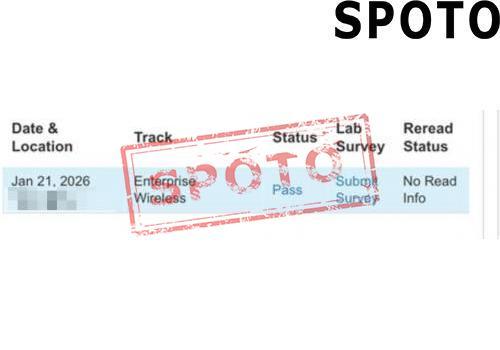
Table of Contents
1. What is a Core Network Engineer?
A core network engineer refers to a core network technician who leads an organization's relevant network team to design, develop and maintain the core framework of the organization's network system.
Other job duties for a Core Network Engineer may include the following:
TAC Engineers are often responsible for designing and implementing the network infrastructure of enterprises or service providers, including local area networks (LANs), wide area networks (WANs), and other data communication networks; at the same time, they also need to perform network modeling, capacity analysis, and planning to ensure network performance and scalability. In addition, TAC Engineers need to closely monitor and troubleshoot network equipment and system failures, and improve network availability and stability through troubleshooting and problem solving, which usually involves in-depth analysis of logs, configuration parameters, and evaluation of network routing and switching structures. As automation becomes increasingly important in modern network operations, TAC Engineers will also use automation tools and scripting languages (such as Python) to simplify daily tasks, thereby improving work efficiency and responsiveness. At the same time, security protection and firewall management are also the focus of TAC Engineers' work. They need to design and maintain network security policies to ensure that access control, VPNs, and other security mechanisms operate reliably to protect the network from intrusion or attack. Finally, TAC Engineers also need to have good technical communication skills - not only to communicate efficiently with customers, clarify requirements and problem scenarios, but also to write clear technical documents, and collaborate with internal R&D and delivery teams to connect solutions and optimization suggestions.
2. How much does a Core Network Engineer Make?
According to data from the ZipRecruiter website on June 19, 2026, the average annual salary for a core network engineer in the United States is $109,040. That's about $52.42 per hour. This is equivalent to $2,096 per week or $9,086 per month. The highest annual salary can reach $158,000 and the lowest is only $31,000, but the current salary for core network engineers is mostly between $89,000 and $133,500, and the highest salary in the United States can reach $143,000 per year. The average salary range for a core network engineer varies greatly (up to $44,500), which means there may be many opportunities for advancement and salary increases depending on skill level, location, and years of experience.
3. What Are the Qualifications to Become a Core Network Engineer?
(1) Obtain a Bachelor's Degree
Degree in Computer Science, Information Technology or Computer Engineering is necessery for Core Network Engineer.
(2) Develop professional skills
As an excellent TAC Engineer, you first need to have a solid foundation of network knowledge, be familiar with TCP/IP protocols, routing and switching technologies (such as OSPF, BGP, etc.), and the architecture design of wide area networks and local area networks. In addition, it is essential to be proficient in the configuration and troubleshooting of network equipment, including the ability to deeply analyze logs, locate network bottlenecks and security risks.At the same time, with the development of network automation, mastering at least one scripting language (such as Python) and network automation tools will greatly improve work efficiency and response speed. You should also have a full understanding of network security technology and be able to configure and maintain security measures such as firewalls, VPNs, and access control lists (ACLs) to ensure the security and stability of the network environment.In addition, TAC Engineers must also have good communication and coordination skills, be able to communicate effectively with customers and internal teams, accurately understand problem requirements and provide technical support, write clear technical documents, and promote the rapid resolution of problems. Finally, the ability to continuously learn new technologies and new products is also a key skill to maintain competitiveness and adapt to industry development.
(3) Earn Industry Certifications
Obtaining a certification that is highly recognized by the industry can prove your professional ability and ability to perform the position, and can also enhance your competitiveness in the workplace. Therefore, we recommend that you obtain the CCIE Service Provider certification.This certification can prove your ability to plan, design, implement, operate, and optimize solutions for complex service provider networks. Tap into unlimited opportunities with the Cisco Certified Internetwork Expert (CCIE) Service Provider certification.
4. Similar Occupations of Core Network Engineer
- Network Engineer
- Network Administrator
- Network Architect
- Systems Engineer
- Information Technology (IT) Specialist
- IP/MPLS Network Engineer
- Backbone Network Engineer
- Datacenter Network Engineer
- Telecommunications Engineer










